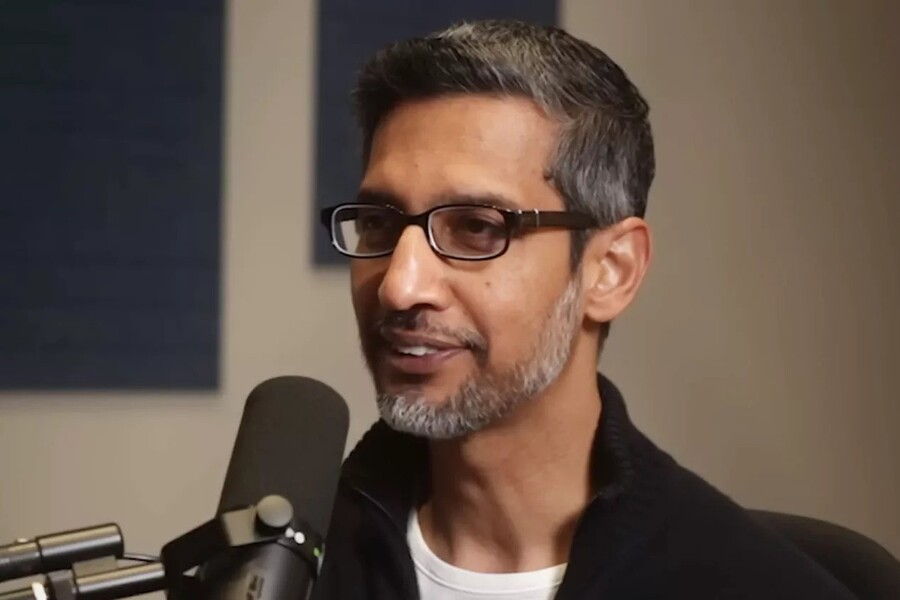Google CEO Sundar Pichai Addresses Concerns Over AI’s Impact on the Human-Created Web in Lex Fridman Interview

In a wide-ranging and revealing interview with AI researcher and podcaster Lex Fridman, Google CEO Sundar Pichai addressed mounting concerns that the rise of artificial intelligence in search, most notably through Google’s AI Overviews and AI Mode, could jeopardize the traditional, human-created web ecosystem that publishers and content creators rely on.
As generative AI becomes increasingly central to how users interact with search engines, many fear that web traffic could collapse under the weight of AI-generated summaries and direct answers, bypassing original content entirely. Pichai’s remarks sought to strike a balance between embracing innovation and defending the future of the open web, though his assurances may not be enough to fully calm growing publisher anxiety.
Commitment to the Human-Created Web
Fridman directly challenged Pichai on whether AI integration means Google is turning its back on the web. Pichai insisted otherwise, stating that continuing to support the web ecosystem is a “core design principle.”
“It helps us deliver higher quality referrals,” Pichai said. “People have a much higher likelihood of finding what they’re looking for. They’re exploring. They’re curious. Their intent is getting satisfied more… That’s what all our metrics show.”
Despite this optimistic framing, Fridman noted a key tension: many human content creators—particularly journalists—fear that AI search is replacing rather than amplifying their work. In response, Pichai underscored Google’s longstanding relationship with the news industry and reaffirmed his commitment to its continued relevance.
“I think news and journalism will play an important role in the future,” Pichai said. “We’re pretty committed to it… I think we’ll be able to differentiate ourselves as a company over time because of our commitment there.”
The “Next Chapter” of Search
Throughout the conversation, Pichai positioned AI as an inevitable and transformational force in search, what he called “the next chapter.” He emphasized that AI integration is not simply a feature enhancement but a paradigm shift in how information is contextualized, discovered, and consumed.
“People wanted answers to more questions, so we’re constantly evolving,” he said, drawing comparisons to earlier transitions in search, such as the shift from desktop to mobile. He added that AI is now powerful enough to layer meaningful context over queries, enabling users to explore with more depth and nuance.
Still, Pichai was careful to frame AI not as a replacement for the web but as a tool to enrich the search journey. “You’re going to go and find a lot of things out on the web. That will be true in AI mode, in AI Overviews, and so on,” he noted.
Advertising in the Age of AI
Fridman also broached the subject of advertising—a major source of Google’s revenue—and its evolving role in AI-driven search. Pichai said the company is currently focused on getting the “organic experience” right, but sees commercial content as an important part of the user journey.
“We view ads as commercial information, but it’s still information,” he said. “With AI Mode… AI itself will help us over time figure out the best way to do it.”
He compared it to podcasting, where ad placements are integrated into the narrative in a way that respects both the listener and the advertiser. “The underlying need of people valuing commercial information… that doesn’t change in an AI moment,” he added.
Will AI Mode Replace the Traditional Search Interface?
Perhaps the most future-facing question came when Fridman asked if AI Mode could eventually become the default way people use the internet, essentially replacing the traditional mix of search snippets and blue links.
Pichai was cautious in his response. “Our current plan is that Mode is going to be there as a separate tab… but as features work, we’ll keep migrating it to the main page,” he said. This suggests an incremental rollout, where user-tested elements of AI Mode may eventually become standard.
He characterized the progression as a “continuum” rather than a replacement. “AI Mode will offer you the bleeding-edge experience,” he explained, with successful elements gradually incorporated into the mainstream search experience.
The Real Tension: Promises vs. Transparency
While Pichai’s words project confidence and vision, critics argue that Google’s actions tell a different story. One of the most pressing issues for publishers is Google’s continued delay in allowing accurate tracking of traffic from AI Overviews and AI Mode. Without clear referral data, content creators cannot measure the impact of these new AI layers on their web traffic, making it difficult to gauge whether Google’s AI enhancements are a blessing or a threat.
This lack of transparency has fueled skepticism that Google’s stated commitment to the web is more rhetorical than real.
What’s Next?
The stakes are high. If Google cannot reassure the publishing industry through action, by prioritizing transparency, preserving link value, and providing tangible support for web creators, it risks alienating the very ecosystem it claims to champion.
At the same time, users are likely to continue gravitating toward more conversational, context-rich experiences powered by AI. That puts Google in a precarious position: balancing innovation with the sustainability of the web itself.
Whether the company can truly do both remains to be seen.
User Intent Takeaway:
What happened? Google CEO Sundar Pichai addressed fears that AI in search will damage the traditional web and journalism.
Why does it matter? Many publishers worry AI Overviews will reduce traffic to their sites, undermining the business model of the open web.
What’s next? Google plans to maintain the open web as part of its AI-powered search experience, but the publishing world is calling for greater transparency and action—not just words.
